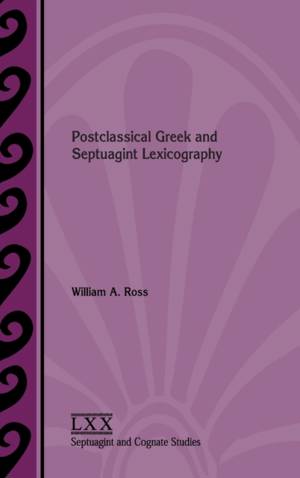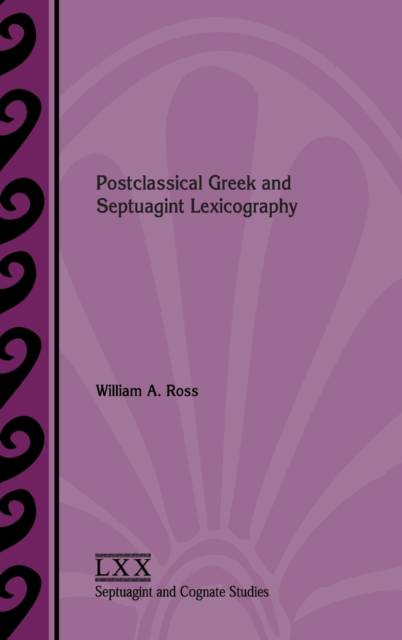
- Retrait gratuit dans votre magasin Club
- 7.000.000 titres dans notre catalogue
- Payer en toute sécurité
- Toujours un magasin près de chez vous
- Retrait gratuit dans votre magasin Club
- 7.000.0000 titres dans notre catalogue
- Payer en toute sécurité
- Toujours un magasin près de chez vous
Description
In this study of the language of the Septuagint, William A. Ross approaches the corpus in light of its contemporary Greek linguistic environment rather than by comparing the Greek to a supposed Hebrew or Aramaic Vorlage. Ross employs a textually based study of the double text of Judges. The results offer a window into the Old Greek translation and its later revision, two distinct stages of the book with numerous instances of divergent vocabulary choices that reflect deliberateness in both the original selection and the subsequent change within the textual development of the book. In the process, Ross also outlines the many challenges of Septuagint lexicography and points the way forward.
Spécifications
Parties prenantes
- Auteur(s) :
- Editeur:
Contenu
- Nombre de pages :
- 300
- Langue:
- Anglais
Caractéristiques
- EAN:
- 9780884145622
- Date de parution :
- 11-03-22
- Format:
- Livre relié
- Format numérique:
- Genaaid
- Dimensions :
- 152 mm x 229 mm
- Poids :
- 607 g

Les avis
Nous publions uniquement les avis qui respectent les conditions requises. Consultez nos conditions pour les avis.






